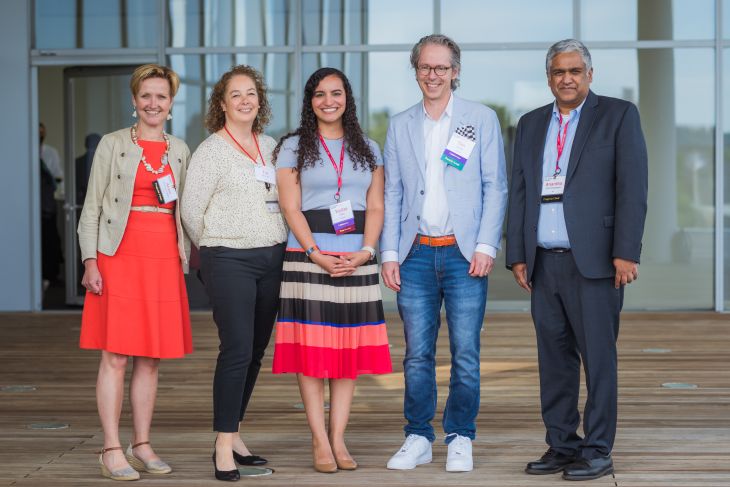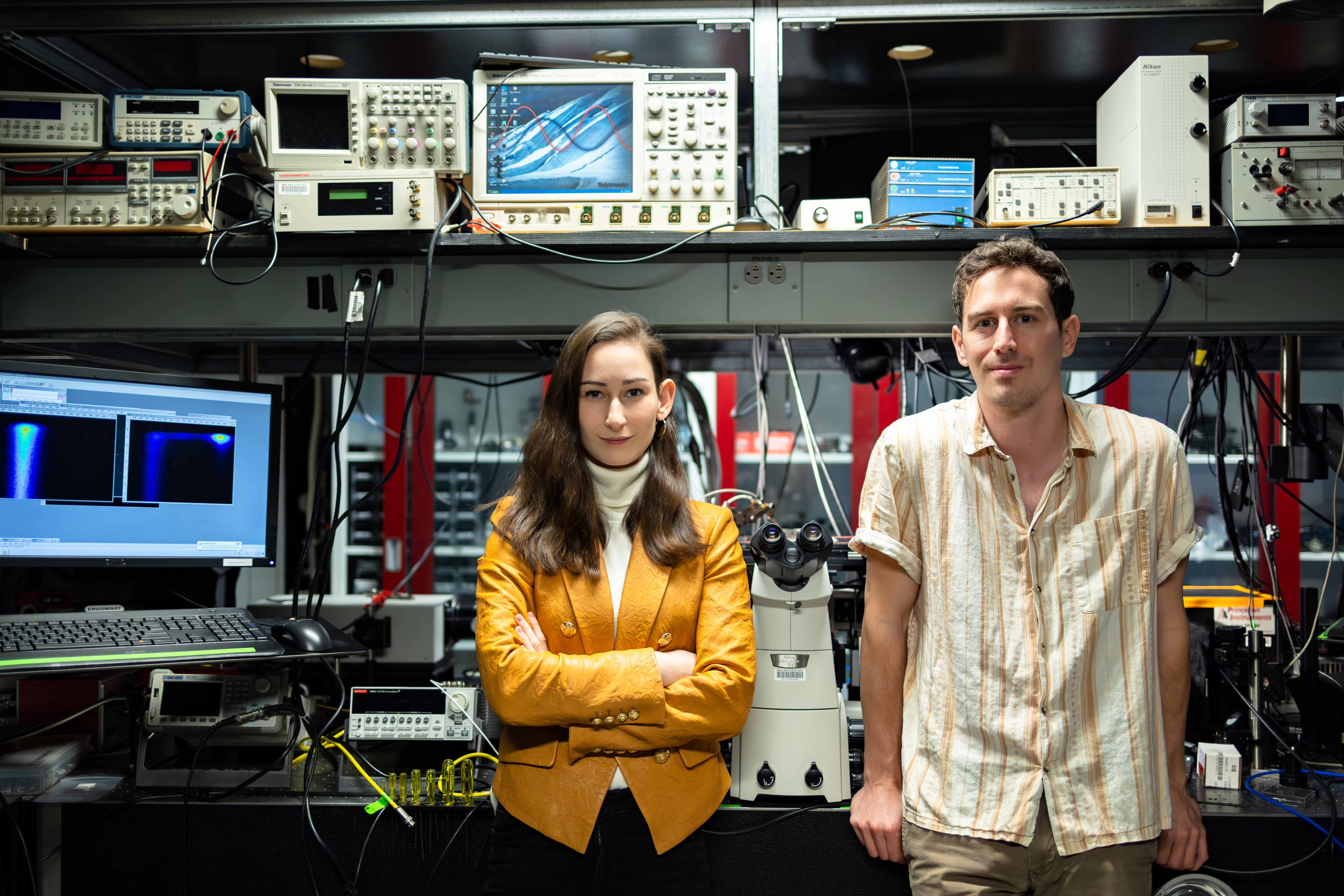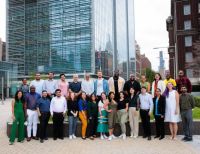In 2020, the School of Engineering and Takeda Pharmaceutical Company launched the MIT-Takeda Program, which aims to leverage the experience of both entities to solve problems at the intersection of health care, medicine, and artificial intelligence. Since the program began, teams have devised mechanisms to reduce manufacturing time for certain pharmaceutical products, submitted a patent application, and streamlined literature reviews enough to save eight months of time and cost.
Now, the program is headed into its fourth year, supporting 10 teams in its second round of projects. Projects selected for the program span the entirety of the biopharmaceutical industry, from drug development to commercial and manufacturing.
“The research projects in the second round of funding have the potential to lead to transformative breakthroughs in health care,” says Anantha Chandrakasan, dean of the School of Engineering and co-chair of the MIT-Takeda Program. “These cross-disciplinary teams are working to improve the lives and outcomes of patients everywhere.”
The program was formed to merge Takeda’s expertise in the biopharmaceutical industry with MIT’s deep experience at the vanguard of artificial intelligence and machine learning (ML) research.
“The objective of the program is to take the expertise from MIT, at the edge of innovation in the AI space, and to combine that with the problems and the challenges that we see in drug research and development,” says Simon Davies, the executive director of the MIT-Takeda Program and Takeda’s global head of statistical and quantitative sciences. The beauty of this collaboration, Davies adds, is that it allowed Takeda to take important problems and data to MIT researchers, whose advanced modeling or methodology could help solve them.
In Round 1 of the program, one project led by scientists and engineers at MIT and Takeda researched speech-related biomarkers for frontotemporal dementia. They used machine learning and AI to find potential signs of disease based on a patient’s speech alone.
Previously, identifying these biomarkers would have required more invasive procedures, like magnetic resonance imaging. Speech, on the other hand, is cheap and easy to collect. In the first two years of their research, the team, which included Jim Glass, a senior research scientist in MIT’s Computer Science and Artificial Intelligence Laboratory, and Brian Tracey, director, statistics at Takeda, was able to show that there is a potential voice signal for people with frontotemporal dementia.
“That is very important to us because before we run any trial, we need to figure out how we can actually measure the disease in the population that we are targeting” says Marco Vilela, an associate director of statistics-quantitative sciences at Takeda working on the project. “We would like to not only differentiate subjects that have the disease from people that don't have the disease, but also track the disease progression based purely on the voice of the individuals.”
The group is now broadening the scope of its research and building on its work in the first round of the program to enter Round 2, which features a crop of 10 new projects and two continuing projects. In Round 2, the biomarker group’s biomarker research will expand speech analysis to a wider variety of diseases, such as amyotrophic lateral sclerosis, or ALS. Vilela and Glass, are leading the team in its second round.
Those involved in the program, like Glass and Vilela, say the collaboration has been a mutually beneficial one. Takeda, a global pharmaceutical company based in Japan with labs in Cambridge, Massachusetts, has access to data and scientists who specialize in numerous diseases, patient diagnoses, and treatment. MIT brings aboard world-class scientists and engineers studying AI and ML across a diverse range of fields.
Faculty from all across MIT, including the departments of Biology, Brain and Cognitive Sciences, Chemical Engineering, Electrical Engineering and Computer Science, Mechanical Engineering, as well as the Institute for Medical Engineering and Science, and MIT Sloan School of Management, work on the program’s research projects. The program puts those researchers — and their skill sets — on the same team, working toward a shared objective to help patients.
“This is the best kind of collaboration, is to actually have researchers on both sides working actively together on a common problem, common dataset, common models,” says Glass. “I tend to think that the more people that are thinking about the problem, the better.”
Although speech is relatively simple data to gather, large, analyzable datasets are not always easy to find. Takeda assisted Glass’s project during Round 1 of the program by offering researchers access to a wider range of datasets than they would have otherwise been able to obtain.
“Our work with Takeda has definitely given us more access than we would have if we were just trying to find health-related datasets that are publicly available. There aren’t a lot of them,” says R’mani Symon Haulcy, an MIT PhD candidate in electrical engineering and computer science and a Takeda Fellow who is working on the project.
Meanwhile, MIT researchers helped Takeda by providing the expertise to develop advanced modeling tools for big, complex data.
“The business problem that we had requires some really sophisticated and advanced modeling techniques that within Takeda we didn't necessarily have the expertise to build,” says Davies. “MIT and the program has brought that to the table, to allow us to develop algorithmic approaches to complex problems.”
Ultimately, the program, Davies says, has been educational on both sides — providing participants at Takeda with knowledge of how much AI can accomplish in the industry and offering MIT researchers insight into how industry develops and commercializes new drugs, as well as how academic research can translate to very real problems related to human health.
“Meaningful progress of AI and ML in biopharmaceutical applications has been relatively slow. But I think the MIT-Takeda Program has really shown that we and the industry can be successful in the space and in optimizing the likelihood of success of bringing medicines to patients faster and doing it more efficiently,” says Davies. “We're just at the tip of the iceberg in terms of what we can all do using AI and ML more broadly. I think that's a super-exciting place for us to be … to really drive this to be a much more organic part of what we do each and every day across the industry for patients to benefit.”







